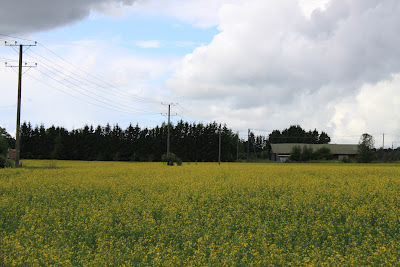For the last two and a half years, a picture I did not take in August 2015 has bothered me. The regret stems not from some beautiful missed sunset or mountain scene but rather from the awful image of dead seabirds washed up on the coast of Washington state. In the past, I have blogged about the disturbing experiences I had with global warming during the summer of 2015, and I have even mentioned that I saw the seabird carcasses, but this will be my first post dedicated specifically to those birds.
I saw the dead birds at Roosevelt Beach, their bodies half-buried in the sand and mixed with ocean debris at the high-water mark. The effects of the summer's unusual weather had already disoriented and disconcerted me. The heat, drought, and fires presented me with a Pacific Northwest I hardly recognized but for which I grieved deeply. Going to the beach seemed like a good way to escape the oppressive conditions, and although the ocean breeze made things cooler, seeing the dead birds added to my alarm. At the time, I didn't know what kind of birds they were, and I didn't realize the connection between the heat and their deaths. As it turned out, they were common murres, and the warming of the Pacific Ocean depleted their food sources, starving them into a mass die-off up and down North America's west coast.
 |
| A common murre swims in the surf off Roosevelt Beach in August 2015. |
Regardless of why I didn't photograph the carcasses, I know I wish I had taken that picture of them. I should have recorded the moment. Because of what those birds went through, they deserved having their fate documented in the hopes that it would inspire people to prevent more die-offs from happening in the future. Additionally, the photo would have added another piece to the larger picture of what global warming, fueled by human activity, does to this planet.
The picture of those dead murres never made it to my camera, but the memory of seeing them on the beach has stayed with me in vivid regret and led me to write these words in an attempt to make up for the omission. I suspect it isn't enough.






